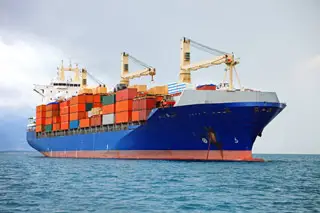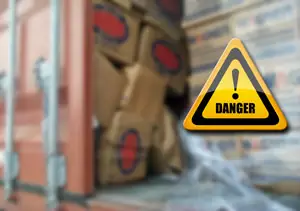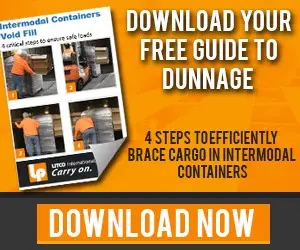Guide – Eliminating Empty Space in Intermodal Shipping Containers and Preventing Transit Damage
Home » Guide – Eliminating Empty Space in Intermodal Shipping Containers and Preventing Transit Damage
Eliminating Empty Space
in Intermodal Shipping Containers
Preventing in-transit damage and delivering your products in farm-fresh or factory-fresh condition is the goal of intermodal carriers. As the manufacturer / shipper, you need to understand the regulations and your responsibilities related to loading and packing your company’s intermodal shipments.
Before the trailer is picked up from your facility, it is your responsibility to provide a safe packing job free of any void or empty spaces that would allow cargo to shift while in transit by trailer, sea-borne ship or railcar.
Litco Corrugated Dunnage Helps You Ship Safer and Better!
- Cost-Effective – As low as $45 to completely secure a 53′ trailer.
- Avoid “Scrap Wood” Hazards – No sharp, protruding nails and loose boards.
- Lightweight and Space Efficient – Many components ship and store totally flat.
- Durable, Reusable and Recyclable – Strong enough to use over and over.
- Flexible Sizing – Use corrugated paper dunnage & inflatable bags in combination.
- Export ready – Per IPPC-ISPM15.
Are you experiencing packaging or product damage during shipping?
Intermodal container shipping is currently the fastest growing rail traffic segment in the United States, tripling in volume since 1990. Because of inefficient or poorly conceived dunnage to fill empty spaces in shipping containers, damage claims and accidents are unfortunately on the rise.
Because forklifts, reach stackers, straddle carriers, and cranes are used to reposition the container loading and unloading trucks or trains along the journey, there is ample opportunity for cargo to shift inside the container if insecurely packed.


